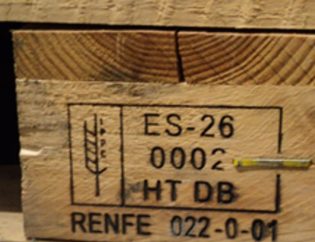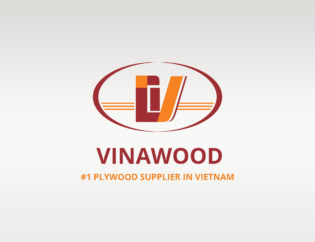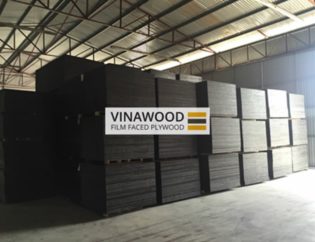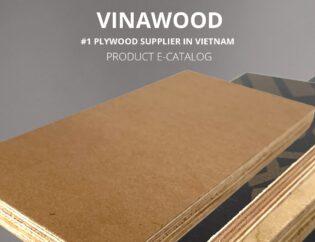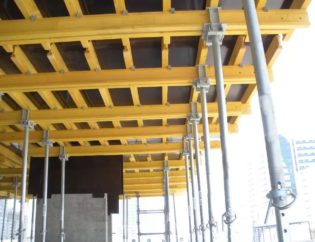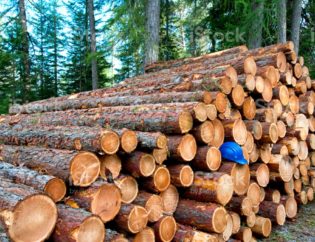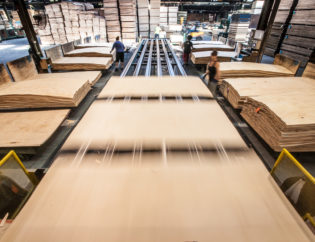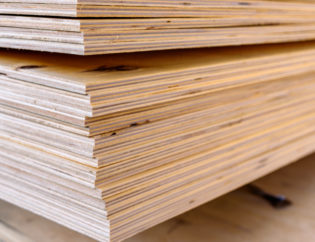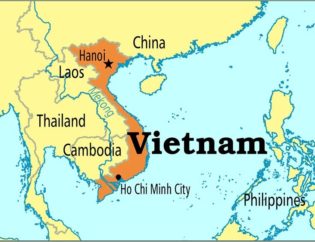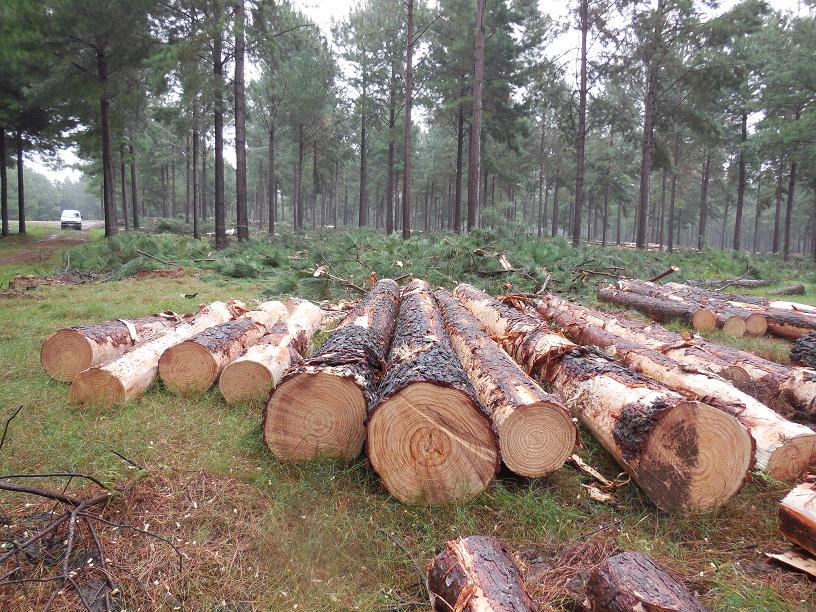

Woodworking Network– LYONS, Ore. – The U.S. Structural Plywood Integrity Coalition, a group comprised of 10 domestic plywood producers, has filed a Lanham Act claim of false labeling against three U.S. certification agencies: PFS TECO, Timber Products Inspection Inc. and International Accreditation Service. The coalition claims certain structural plywood panels produced in South America are being fraudulently certified and stamped as compliant with U.S. product standards.
Filed in U.S. District Court for the Southern District of Florida, the lawsuit claims 35 plywood plants in Paraná and Santa Catarina, Brazil, are falsely stamping millions of square feet of structural plywood panels imported into the United States as meeting the U.S. Voluntary Product Standard PS 1-09 for structural plywood. The suit charges PFS TECO and TPI of issuing PS 1-09 compliance certificates authorizing the plants to stamp plywood panels as meeting the PS 1-09 structural grade requirements — without independent testing performed — thereby making them eligible for sale as structural panels in the United States. PFS TECO and TPI are accredited by International Accreditation Service Inc.
Structural plywood panels are used for flooring, roofs and walls in residential and commercial buildings and must meet PS 1-09 standards to comply with U.S. building codes. According to the suit, tests by the American Plywood Association in 2018, and commissioned by the coalition in 2019, show plywood panels produced in southern Brazil experienced massive failure rates when tested under the PS 1-09 standard, specifically in regard to bending stiffness and deflection.  Shown is an APA stamp signifying that this structural panel meets industry standards for building codes. Photo: Freres Lumber.
Shown is an APA stamp signifying that this structural panel meets industry standards for building codes. Photo: Freres Lumber.
Although the southern Brazil plantations were planted in loblolly pine, slash pine, and other North American species typically used in domestic panel manufacturing, “when these species are planted in regions they have never naturally grown, the tree’s fiber no longer behaves like those grown in their natural regions. The temperate climate and full-year growing season in Brazil lead to fiber that has very little stiffness or strength when used in plywood panels,” the suit states, nor can the species grown there “consistently and reliably produce PS 1-09 compliant structural plywood.”
“The product standards for American plywood have serious real-world implications for all homes constructed using wood panel products,” said Tyler Freres, vice president of sales with Freres Lumber, one of the coalition members. “Inferior products can endanger the health and safety of everyone who depends upon their homes to provide shelter and security for their families and loved ones. It is incumbent upon engineered wood products manufacturers to ensure that we meet all codes and that U.S. certification agencies have consumers’ health and safety as their primary concern when providing their certifications.”
Brazilian PS 1-09 plywood imports into the United States in 2018 and 2019 to date represent approximately 15% of total U.S. structural plywood consumption, according to the lawsuit. The plaintiffs are seeking preliminary and permanent injunctions requiring the two certifying agencies, PFS TECO and TPI to revoke the PS 1-09 compliance certificates that each agency has issued to the 35 plywood plants. Additionally, the lawsuit seeks damages of $150 million dollars, plus an additional amount to be specifically proven at trial.
Michael Haglund (503-225-0777) is lead counsel for the coalition, which includes Coastal Plywood Co., Scotch Plywood Co. Inc., Veneer Products Acquisitions LLC, Southern Veneer Specialty Products LLC, Hunt Forest Products LLC, Freres Lumber Co. Inc., Hardel Mutual Plywood Corp., Murphy Co., SDS Lumber Co., and Swanson Group, Inc.
“It is clear to the U.S. Structural Plywood Integrity Coalition that there was a concerted effort to defraud American consumers by misrepresenting imported panels as equivalent to domestic panels,” Freres said. “That, combined with the federally-mandated timber harvest reduction in the Northwest not only provided the opportunity, but encouraged the importation of wood products from all over the world.”
The suit, “U.S. Structural Plywood Integrity Coalition, et al. v. PFS Corporation, a Wisconsin corporation, dba PFS-TECO, Timber Products Inspection, and International Accreditation Service Inc.,” was filed on Sept. 5.


